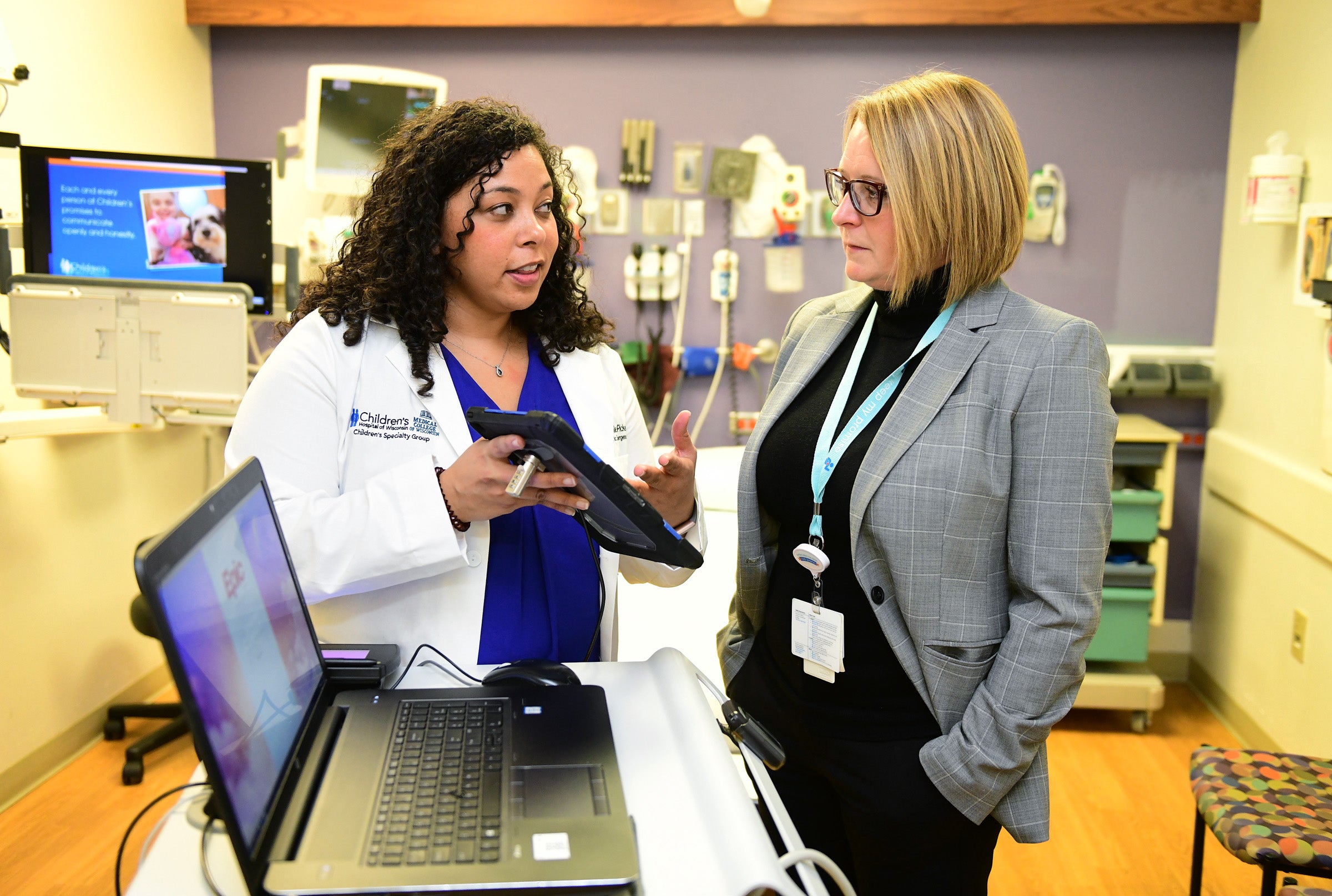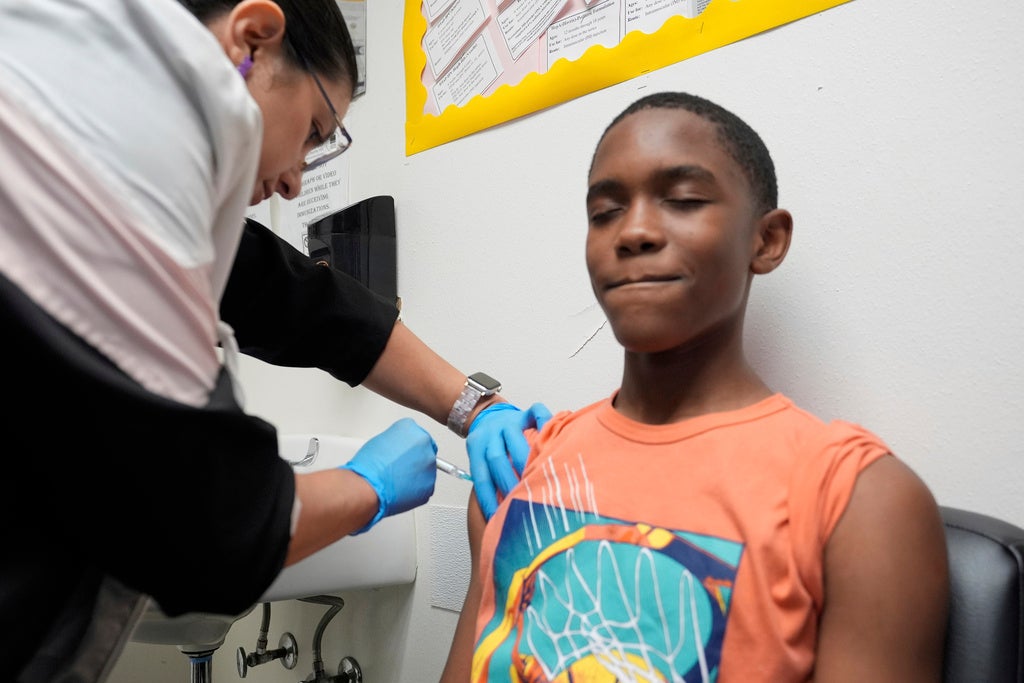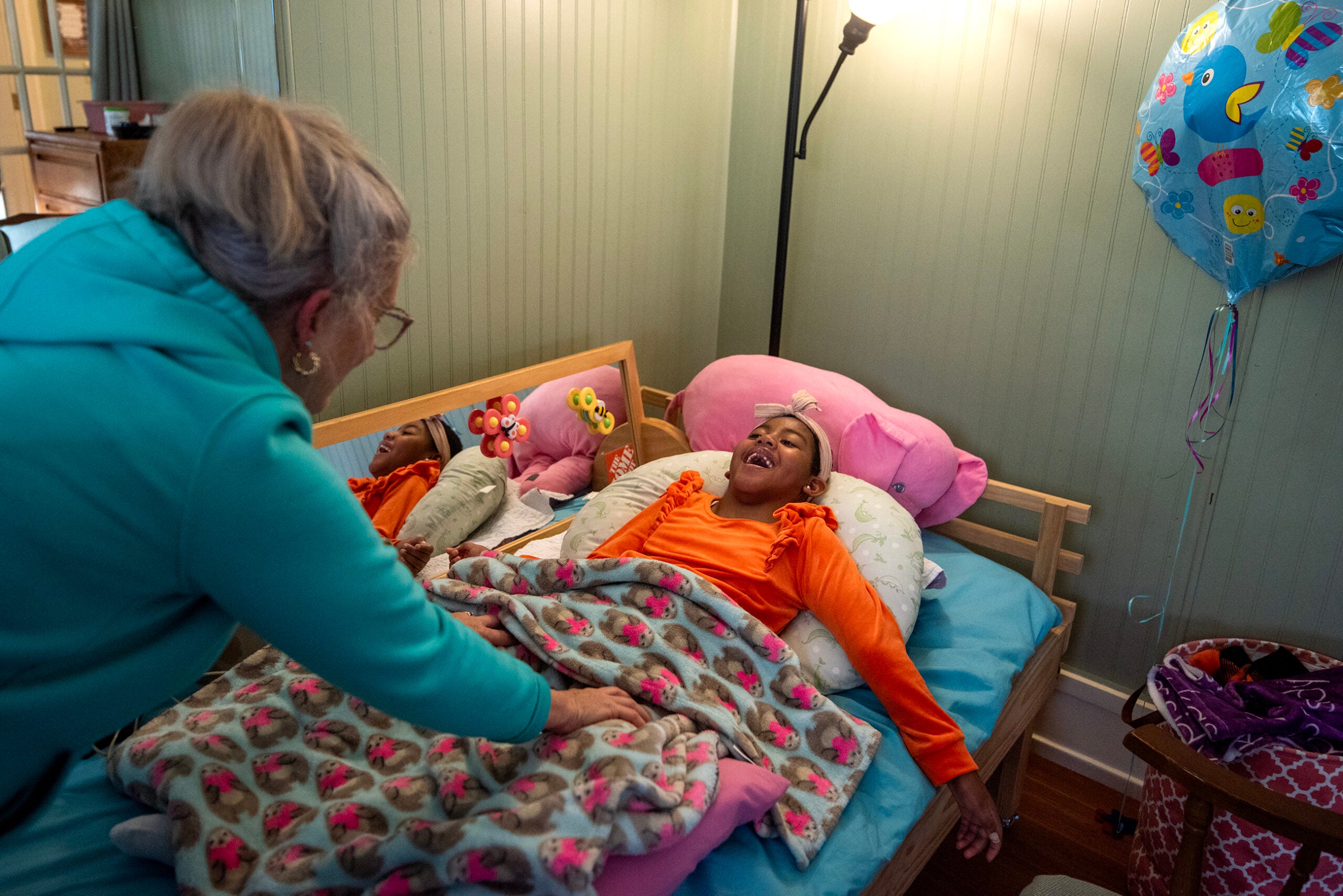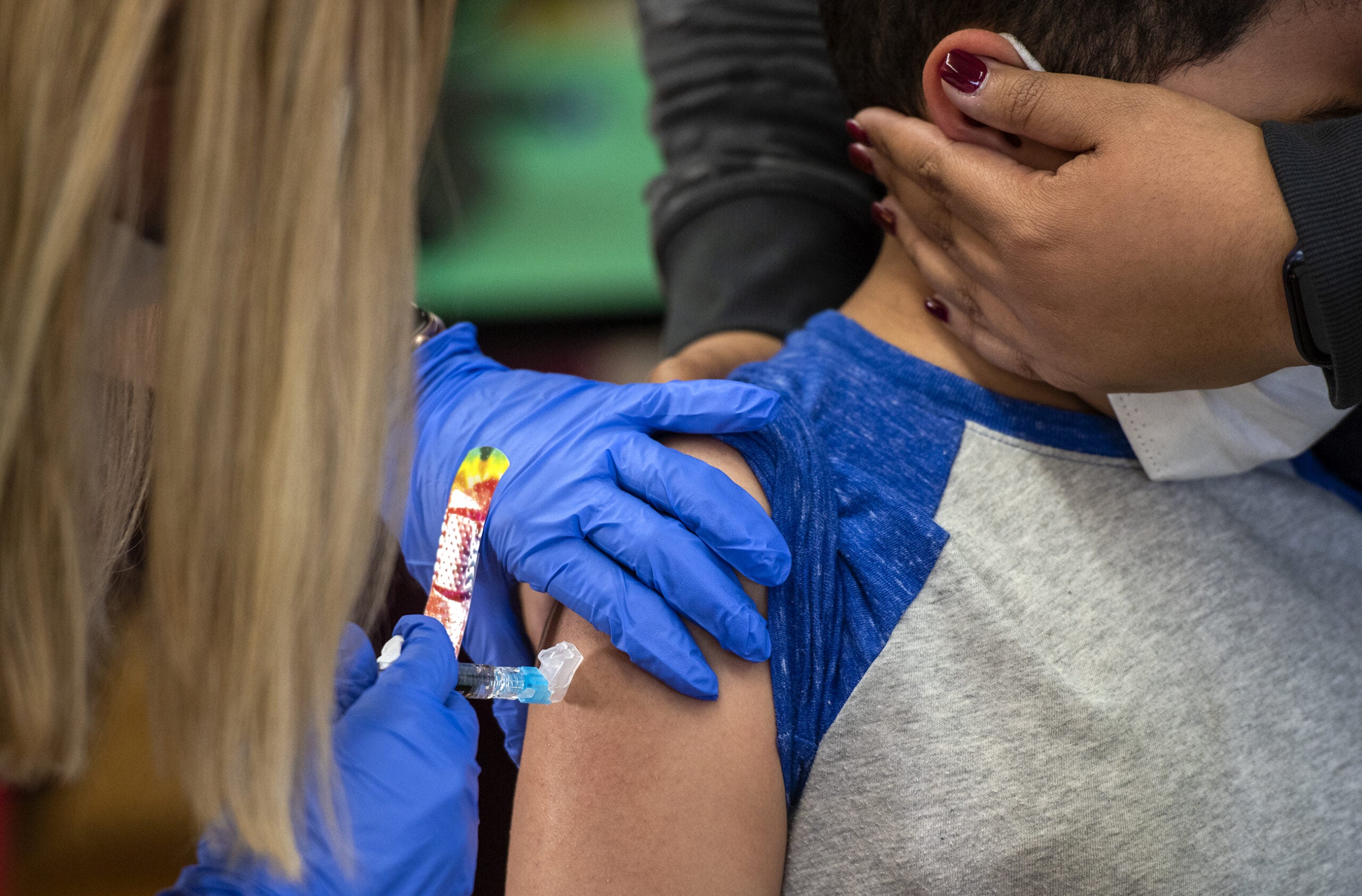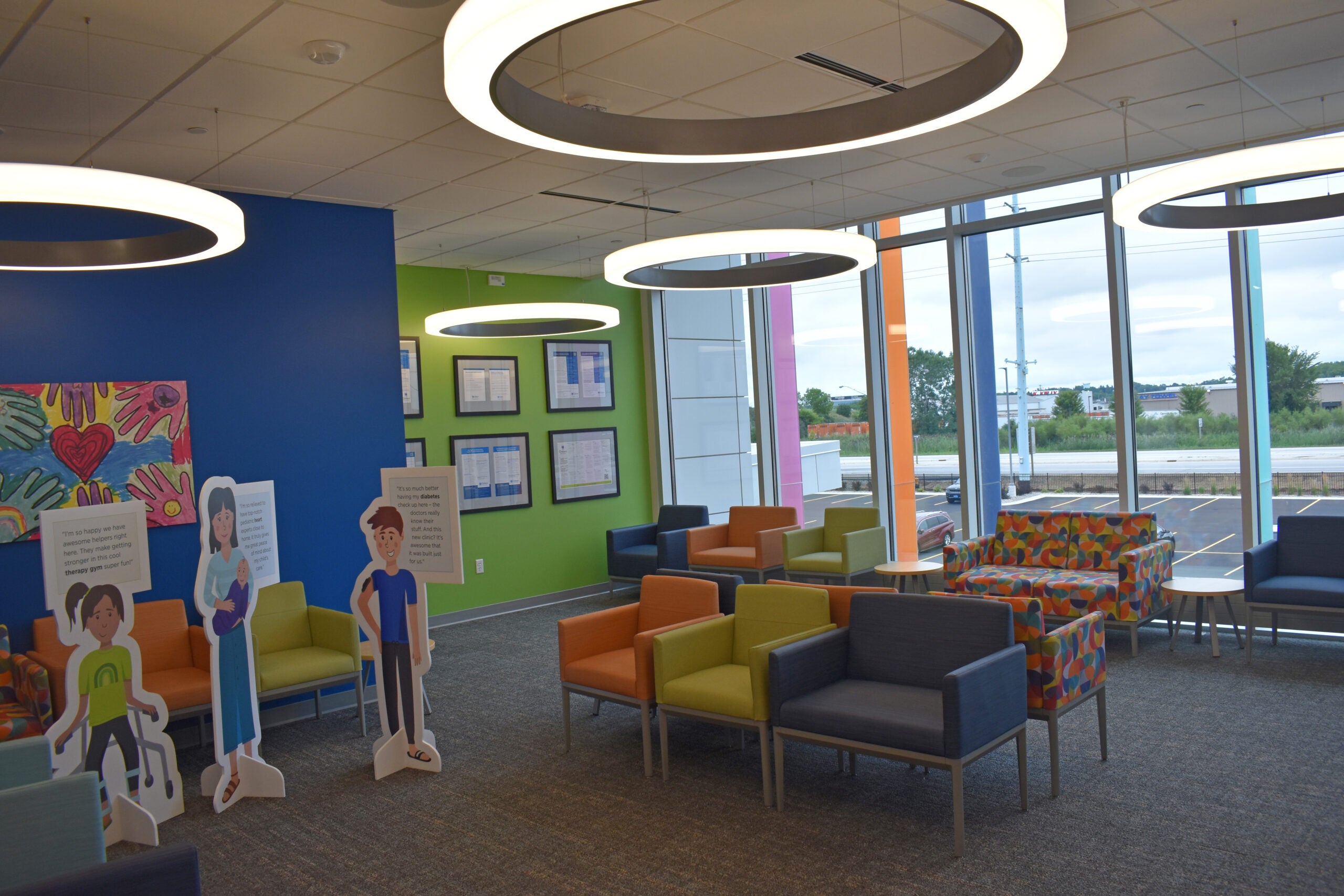Children’s Wisconsin, formerly known as Children’s Hospital of Wisconsin, announced on Tuesday a new five-year plan to help address the growing mental health crisis Wisconsin children are facing.
The hospital created seven initiatives to improve mental health efforts but needs an estimated $150 million for the plan to be fully implemented.
The funds would help Children’s expand their mental health operations by hiring more professionals in the behavioral and mental health fields like psychologists, psychiatrists and therapists.
News with a little more humanity
WPR’s “Wisconsin Today” newsletter keeps you connected to the state you love without feeling overwhelmed. No paywall. No agenda. No corporate filter.
“We know our community looks to us to do what is best for kids. Children’s has more than 2 million touch points with kids across the state each year. We believe this plan identifies how Children’s can impact a significant number of kids in the state,” Peggy Troy, president and CEO of Children’s said in a statement.
The seven initiatives Children’s Wisconsin identified are:
- Universal screening for mental health
- Early childhood mental health
- School-based mental and behavioral health
- Integrated mental and behavioral health
- Therapist fellowship program
- Urgent and emergent health
- Partnerships with inpatient and residential care providers
The initiatives are designed to detect mental and behavioral health needs, improve access to services and reduce the stigma around mental health illnesses.
A 2017 Wisconsin Office of Children’s Mental Health report found that children and teens in Wisconsin were hospitalized for a mental illness four times more than the national rate. Troy said earlier this month that the health outcomes for young people in Milwaukee were “abysmal” and that health care around the state is a crucial issue.
According to the report, Wisconsin regularly has higher youth suicide rates than the national average.
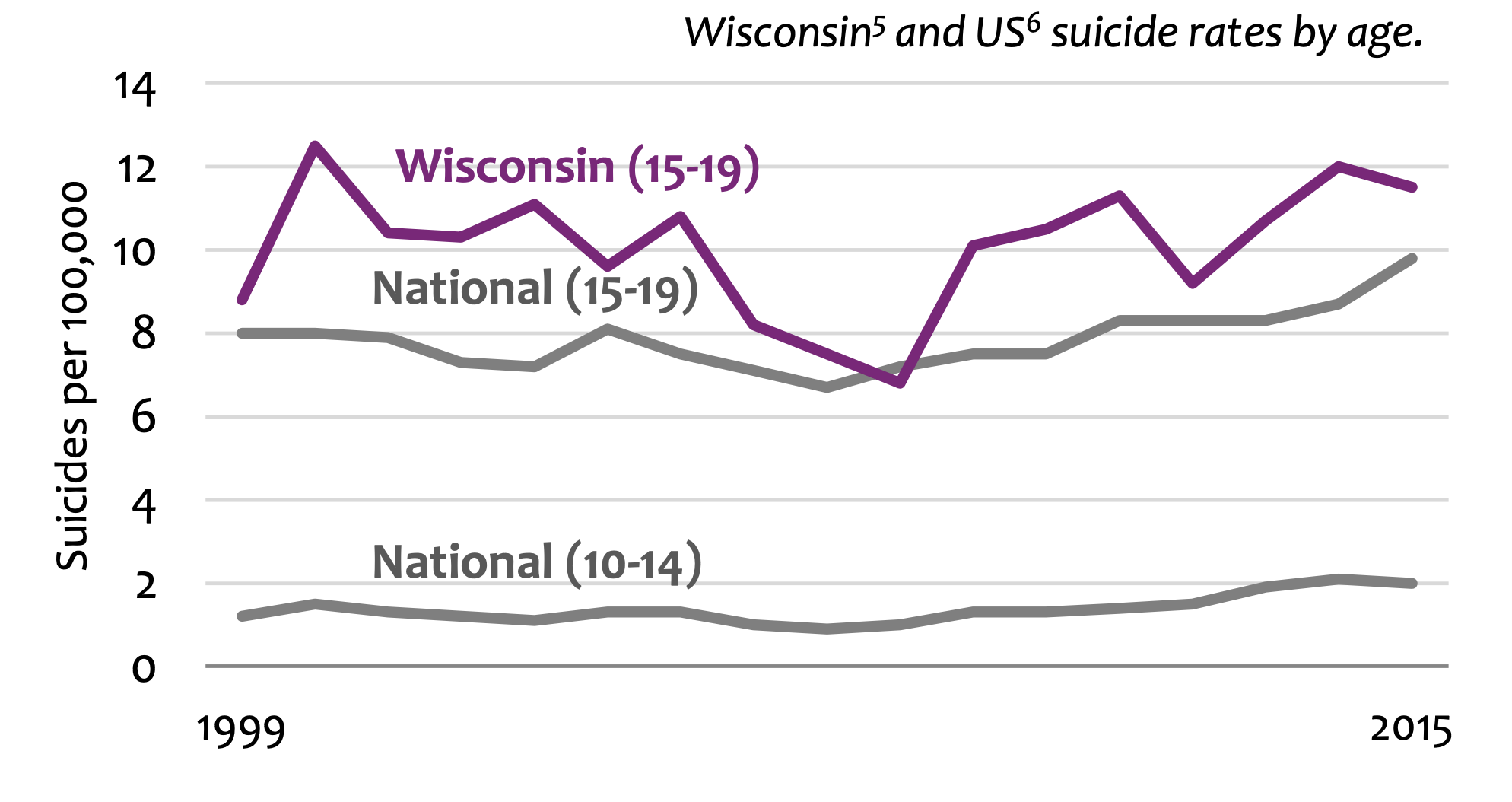
Amy Herbst has been the vice president of mental and behavioral health at Children’s for just over year, but she’s been with Children’s for 21 years. She told WPR that the hospital committed to children’s mental health a few years ago to improve strategies and to be clear on how they defined mental health. She said access to proper mental health services is limited across the state.
“We really think we are in the midst of a public health crisis when you look at the mental health for our kids,” Herbst said. “We are Children’s Wisconsin, and we wanted to do our part to improve the mental health of kids.”
Herbst said the biggest change in the hospital’s approach to improving mental health is universal screening. The hospital already screens young people who are suspected to have a mental illness. But Herbst said Children’s want to start screening every child in their care.
“We want to get to a place where we are screening not some of our kids, but all of our kids for mental health,” Herbst explained. “So that we don’t wonder how they are doing, we know.”
Children’s has already started fundraising for the $150 million. So far Kohl’s has donated $5 million and both the Rexnord Foundation and The Boldt Company have donated $1 million. Additional funds will come from state and federal resources, partnerships and other investments.
Herbst said she hopes within the next five years, Children’s will help to end the mental health stigma and show it’s just as important as physical health.
“Our main priority in all of this is to create access to the mental health care that kids and families need,” Herbst said. “So that they are getting what they need, when they need it and where they need it.”
Wisconsin Public Radio, © Copyright 2026, Board of Regents of the University of Wisconsin System and Wisconsin Educational Communications Board.
